
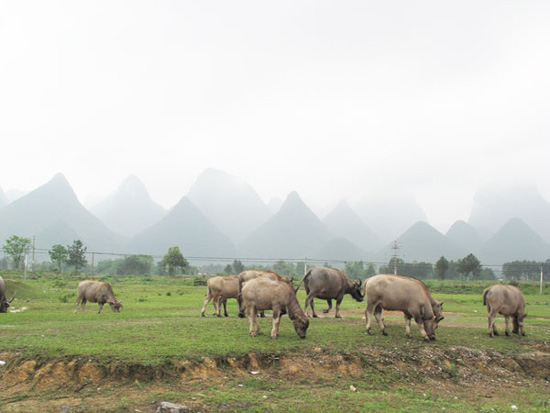 |
| Pancun village is a fertile place surrounded by rolling mountains. (China Daily/Li Yang) |
The ancestors of current inhabitants, a Mulam family named Pan, fled to the mountains in northern Guangxi from Wuxi in Jiangsu province late in the Song Dynasty to avoid the Mongolian invaders.
When they reached the site of the village, they thought it was an auspicious place to settle down. They found coal in the valley, which could be used for heating, and there was a brook flowing at the foot of the mountains.
The river provided them with enough water and there was a patch of fertile land - rare in mountainous areas. They named the patch of land "dragon boat land", as they firmly believed the God of heaven guided their way here.
The Pan family cultivated small patches of land in valleys and planted rice, sweet potato, sugarcane, corn and mushrooms. The village gradually prospered into a place with hundreds of people.
They made their new homes easy to defend and difficult to attack. The village, encircled by a tall gabled wall, looks like a small castle from the outside, with watchtowers and gates facing different directions.
They also built an inner-village, which was encircled by tall buildings. If the outer defense line was broken, the villagers could withdraw to the inner-village, equipped with a grain depot and water cellar.
The villagers could live on the food and water stored there for about 100 days.
The labyrinth-like lanes made it easy for local people to flee and hard for strangers to navigate.
The lanes are 1 to 2 meters wide and equipped with the original open-gutter drainage system dating back to the Song Dynasty. About 50 cm deep and 50 cm wide, the gutters divert the mountain torrents and flooding rains to the paddy field outside the village.
Thanks to the reliable drainage system, the village has not been flooded for nearly 800 years.
The villagers pay special attention to protecting the gutters.
Deng Cheyi, a local villager says: "We are taught from childhood not to throw anything into the gutters. In fact, we did not have so much rubbish before. Cow dung is the only thing you can find in the gutters. But when the flood comes, the dung will be washed to the paddy fields as valuable fertilizer."
Kaitang Festival in November and Yifan Festival in winter, held every three to five years, are the two most important festivals for the Mulam ethnic group in the village.
The villagers offer sacrifices of thanksgiving for God's protection.
The tribal heads of the village are responsible for practicing festival rituals and etiquette.
 |  |


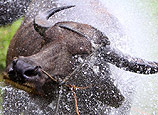
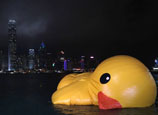
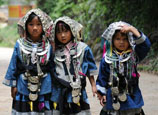




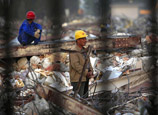






 Three injured in plane's failed take-off in NE China | Pictures
Three injured in plane's failed take-off in NE China | Pictures


![]()
